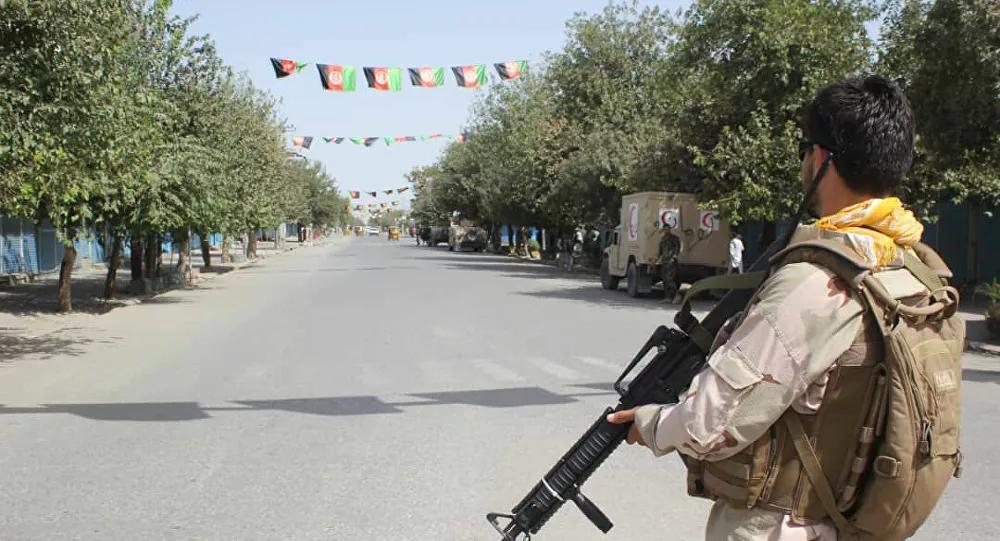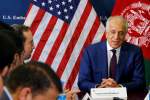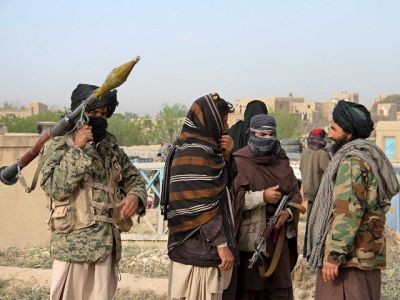Although previous attempts to reach an agreement between the Taliban and the US have proven futile, this time around the agreement might hold but only if the Islamic group keeps its word to stay away from terror and open a dialogue with the Afghan government.
Publish dateWednesday 18 March 2020 - 13:22
Story Code : 205716
It's been three weeks since Washington signed an historic agreement with the Afghan political movement and military organisation, the Taliban, aimed at ending a 19-year conflict in the nation.
According to the deal, the US will start gradually withdrawing its 12,000 troops stationed in the war-torn country until their final removal within a period of 14 months.
Until then, American soldiers are expected to continue their counter terrorism activity against such groups as al-Qaeda and Daesh and will continue to support the Afghan government and their security forces, who have been fighting the Taliban for years.
Apart from the gradual pullout, the agreement also stipulates a prisoner swap between the Taliban and Afghan security forces and presupposes that troops will only be removed in exchange for the Taliban's commitment to maintaining stability in the region as well as their entering into a round of peace talks with the Afghan government.
What are the Taliban's Real Intentions?
"We have noted the agreement but [we also] have concerns about it", said Javid Faisal, spokesman for the Afghanistan Security Council. "There are areas of [the deal] that we don’t agree with but we hope that Taliban won’t turn back to violence and fulfill their promises".
The Taliban has a history of not sticking to their word. In September 2019, amid peace talks with Washington, Taliban operatives killed an American soldier and injured 11 others, prompting US President Donald Trump to pull out of negotiations and call off a planned visit by Taliban officials to the American capital.
This time too, days after the historic agreement was signed, the Taliban attacked an Afghan national defence and security checkpoint, leading to a "defensive" strike by the US.
Divisions within the Taliban are yet another reason for concern. While the political branch, which is mostly based in neighbouring Pakistan, is supportive of the agreement, the military wing, operational on the ground in Afghanistan, is not and that means orders and instructions given by one branch will not necessarily be implemented by another.
This as well as "persuasive intelligence" led the US government to believe that the Taliban had no intention of honouring promises given during the signing of the agreement in Doha.
While the Taliban denied these allegations, estimates are that the group's real intention is to establish full control over Afghanistan once US troops are out.
America Wants Out?
The Taliban had goverened Afghanistan since 1996 and established strict Sharia Law across the areas it controlled, but was dealt a severe blow in 2001 when American troops invaded in an effort to crack down on the group for harbouring al-Qaeda, a terrorist organisation that carried out the deadly 9/11 attacks in the US.
But while the Taliban's base has since been shattered, their intention to return to earlier times never wavered. In battles that erupted shortly after the invasion, the US lost some 2,400 soldiers with 20,000 others wounded.
The 19-year war has also cost the US some $2 trillion, forcing Washington to recalculate its routes. It was for these reasons that President Trump has been pushing for withdrawal.
But there is a political reason too. With US elections less than a year away, Trump wants to show off some achievements and wants to prove to voters that he is a man of his word.
Yet, he realises that US withdrawal might not bring about the much-needed stability in the region: the American pullout from Iraq in 2007 only caused more tensions, subsequently paving the way for the creation of Daesh.
The American back-out from Kurdish-administered areas of northern Syria in October 2019 has also led to bloodshed prompting battles between Syrian government forces and the Turkish Army, who rushed to fill the void once US forces were gone.
Javid Faisal is aware of what a pullout might entail. "A withdrawal itself does not guarantee peace in Afghanistan but a crackdown on terrorists’ safe havens, their sanctuaries, and financial sources does. We would like to negotiate with the Taliban, as we believe that it will give us peace".
"At the same time, the Taliban must remember that the withdrawal is conditional. If they don't commit to what they promised, it will have negative impacts on this entire region", he summed up.
According to the deal, the US will start gradually withdrawing its 12,000 troops stationed in the war-torn country until their final removal within a period of 14 months.
Until then, American soldiers are expected to continue their counter terrorism activity against such groups as al-Qaeda and Daesh and will continue to support the Afghan government and their security forces, who have been fighting the Taliban for years.
Apart from the gradual pullout, the agreement also stipulates a prisoner swap between the Taliban and Afghan security forces and presupposes that troops will only be removed in exchange for the Taliban's commitment to maintaining stability in the region as well as their entering into a round of peace talks with the Afghan government.
What are the Taliban's Real Intentions?
"We have noted the agreement but [we also] have concerns about it", said Javid Faisal, spokesman for the Afghanistan Security Council. "There are areas of [the deal] that we don’t agree with but we hope that Taliban won’t turn back to violence and fulfill their promises".
The Taliban has a history of not sticking to their word. In September 2019, amid peace talks with Washington, Taliban operatives killed an American soldier and injured 11 others, prompting US President Donald Trump to pull out of negotiations and call off a planned visit by Taliban officials to the American capital.
This time too, days after the historic agreement was signed, the Taliban attacked an Afghan national defence and security checkpoint, leading to a "defensive" strike by the US.
Divisions within the Taliban are yet another reason for concern. While the political branch, which is mostly based in neighbouring Pakistan, is supportive of the agreement, the military wing, operational on the ground in Afghanistan, is not and that means orders and instructions given by one branch will not necessarily be implemented by another.
This as well as "persuasive intelligence" led the US government to believe that the Taliban had no intention of honouring promises given during the signing of the agreement in Doha.
While the Taliban denied these allegations, estimates are that the group's real intention is to establish full control over Afghanistan once US troops are out.
America Wants Out?
The Taliban had goverened Afghanistan since 1996 and established strict Sharia Law across the areas it controlled, but was dealt a severe blow in 2001 when American troops invaded in an effort to crack down on the group for harbouring al-Qaeda, a terrorist organisation that carried out the deadly 9/11 attacks in the US.
But while the Taliban's base has since been shattered, their intention to return to earlier times never wavered. In battles that erupted shortly after the invasion, the US lost some 2,400 soldiers with 20,000 others wounded.
The 19-year war has also cost the US some $2 trillion, forcing Washington to recalculate its routes. It was for these reasons that President Trump has been pushing for withdrawal.
But there is a political reason too. With US elections less than a year away, Trump wants to show off some achievements and wants to prove to voters that he is a man of his word.
Yet, he realises that US withdrawal might not bring about the much-needed stability in the region: the American pullout from Iraq in 2007 only caused more tensions, subsequently paving the way for the creation of Daesh.
The American back-out from Kurdish-administered areas of northern Syria in October 2019 has also led to bloodshed prompting battles between Syrian government forces and the Turkish Army, who rushed to fill the void once US forces were gone.
Javid Faisal is aware of what a pullout might entail. "A withdrawal itself does not guarantee peace in Afghanistan but a crackdown on terrorists’ safe havens, their sanctuaries, and financial sources does. We would like to negotiate with the Taliban, as we believe that it will give us peace".
"At the same time, the Taliban must remember that the withdrawal is conditional. If they don't commit to what they promised, it will have negative impacts on this entire region", he summed up.
avapress.com/vdca6mnui49nw01.tgk4.html
Tags
Top hits
4












